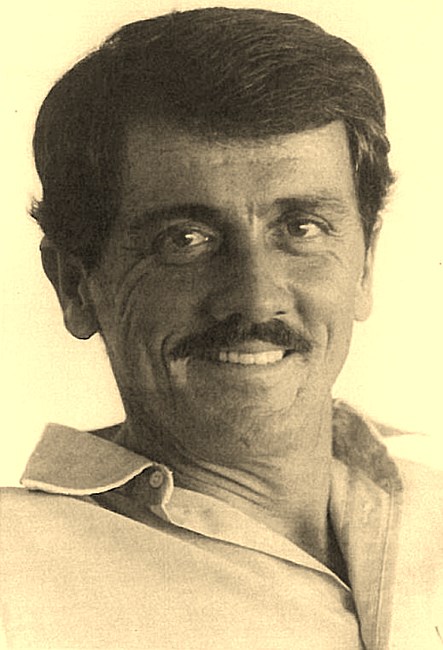
OBITUARY
Terry K. Schultz
November 18, 1938 – October 20, 2019

Terry K. Schultz, M.D died October 20, 2019 in his home in Denver under the care of his wife and hospice caregivers while recovering from recent surgery. He was 80. Though he experienced the onset of Alzheimer’s six years ago, he remained active until his death, enjoying the beauty of his home and garden, music and walks with his dogs in lovely Colorado parks.
Recognized as a leader in the field of addictive diseases, with a special focus on the neurobiology of addiction, Dr. Schultz founded several clinical and education programs both in the public and private sectors, including developing and coordinating treatment programs in the military at Tripler Army Medical Center (Hawaii) and Walter Reed Army Medical Center (Washington, D.C.), and serving as Consultant on Alcohol and Drug Abuse to The Army Surgeon General. He was a Founding Director of the first Clinical Fellowship in Alcohol and Drug Studies for Army Psychiatrists, and a Dept of Defense Representative to the National Advisory Council on Drug Abuse (NIDA/NIH). Retiring with the rank of Colonel after 20yrs of military service, Dr. Schultz began his second career with Kaiser Permanente, Mid-Atlantic and Colorado regions, retiring after 15 years as a physician in the department of chemical dependency.
Growing up in Chicago, he received his medical degree from the University of Illinois School of Medicine followed by four years at the Yale University School of Medicine, Dept of Psychiatry with additional Fellowship Training in Social/Community Psychiatry with the Dept’s School of Public Health. He served in the US Army Medical Corp as an Aviation Medicine Officer and Instructor from 1965-67, developing and directing a behavior modification program for aviation personnel and their families. He became interested in drug research and rehabilitation when in 1971 he received a DHEW grant to study “Drugs and the Youth Culture”, research that showed alarmist approaches in drug education were counter-productive with youth. He maintained a private psychiatric practice (with subspecialty in addictions) in Florida until 1980 when he was recruited by the Army to develop a comprehensive addictions training and rehabilitation program at Tripler Army Medical Hospital, a VA-Triservice Alcoholism Recovery Facility (TRISARF) serving all military personnel in the Pacific Region. In 1989 he joined Walter Reed Army Medical Center’s Dept of Psychiatry where he served until 1993 as Addiction Medicine Consultant, Chief of the Community Psychiatry Service as well as developing curriculum in Neuropsychiatry and a Substance Abuse Residency program. During his military career he received numerous awards including the Legion of Merit, and the Army Award of Achievement for Physical Fitness for his unbroken string (17yrs) of maximal scores on the Army Physical Fitness test, which was a special source of pride for him. He lectured extensively throughout the U.S. and overseas, addressing topics such as “Alcohol and the Brain”, “The Disease Concept of Alcoholism” and ”Alcohol and Drug Abuse Prevention and Control”.
His writings were published in peer-reviewed journals on alcohol withdrawal syndrome and related topics.
He was an active member in many professional organizations including the Association of Medical Education and Research on Substance Abuse (AMERSA), National Institute on Alcohol Abuse and Alcoholism (NIAAA) and the American Society of Addiction Medicine (ASAM). He served as the ASAM Hawaii State Chair from 1986-89, was ASAM’s Liaison to the White House Office for Treatment Improvement (1990), served as a Certification Review Course presenter and coordinator for ASAM annual conferences, and was one of the first physicians to receive the status of ASAM Fellow (FASAM). His work as Co-Chair and Syllabus Editor for the ASAM State-of-the-Art Conferences, as well as serving as co-editor for ASAM’s Principles of Addiction Medicine (2nd and 3rd editions) earned him special recognition for his contributions to the field of addition medicine.
A fitness enthusiast and avid runner (Boston and Honolulu marathons plus a 50-mile ultra-marathon), Dr. Schultz was also a passionate art collector and supporter of the fine arts. His life was also enriched by the companionship of two wonderful dogs and three sweet parrots.
He is survived by Joanne, his wife of 38 years, and brothers Gary Schultz (twin) and Donald Schultz. He will be cremated as he wished. No memorial service will be held. To honor his appreciation of knowledge and beauty, donations may be sent to National Public Radio or local affiliates.
Show your support
Add a Memory
Share Obituary
Get Updates
Services
SHARE OBITUARY
- RECEIVE UPDATES
v.1.8.18